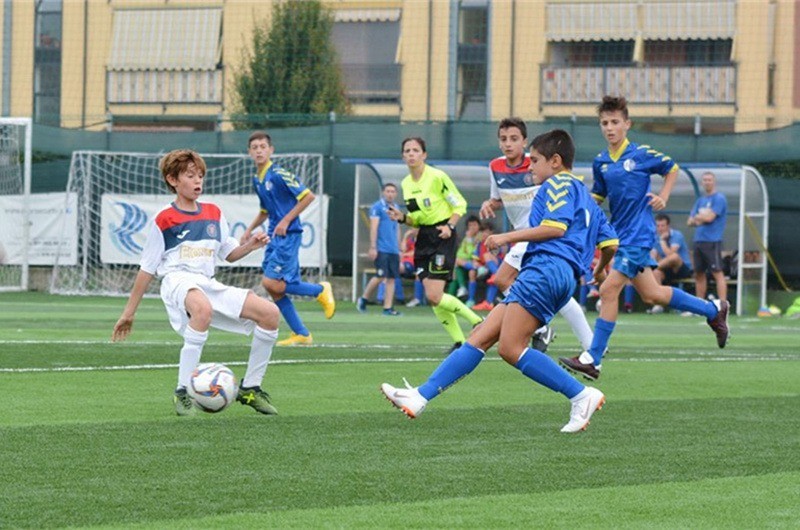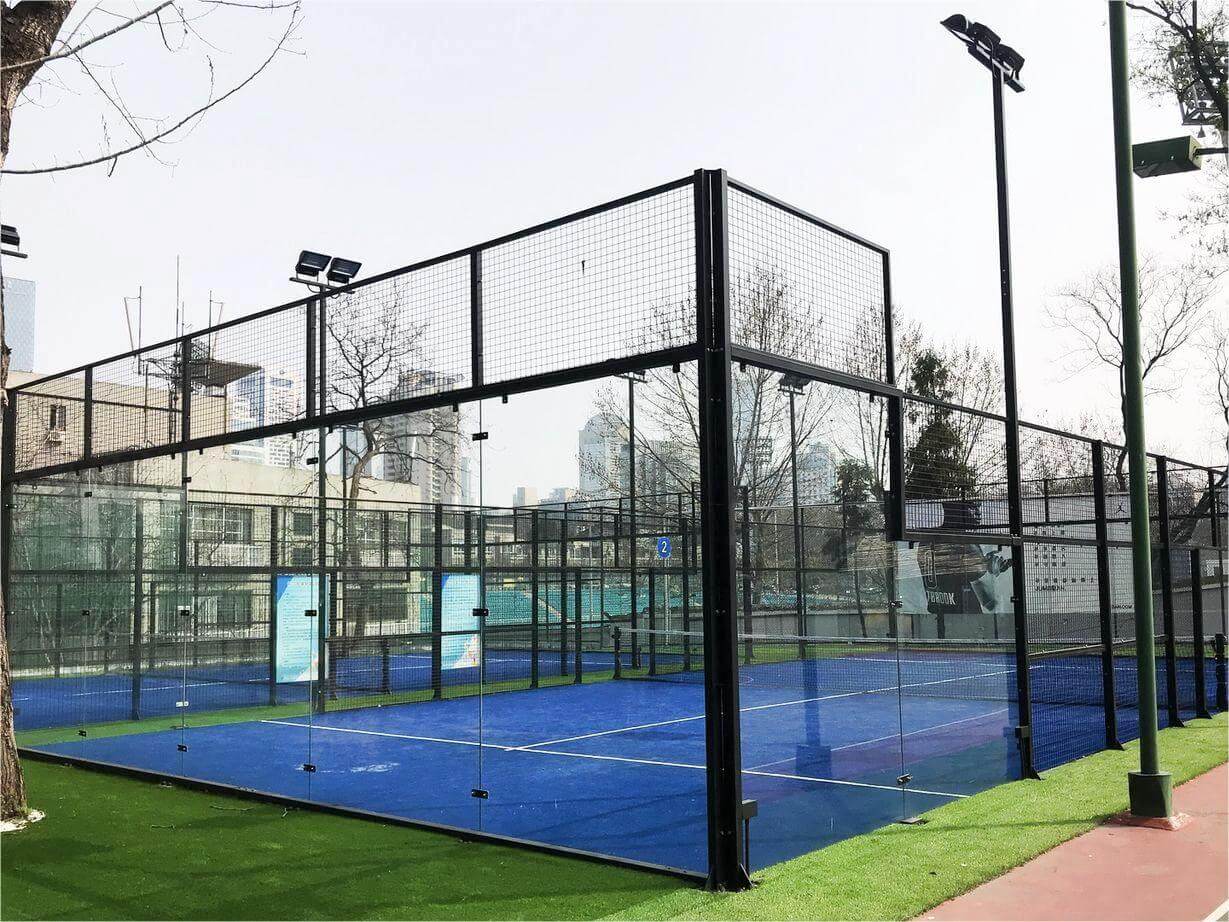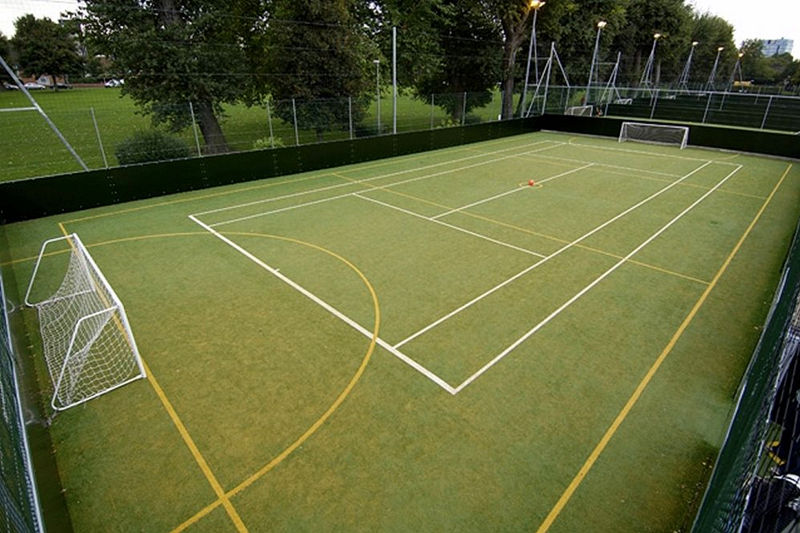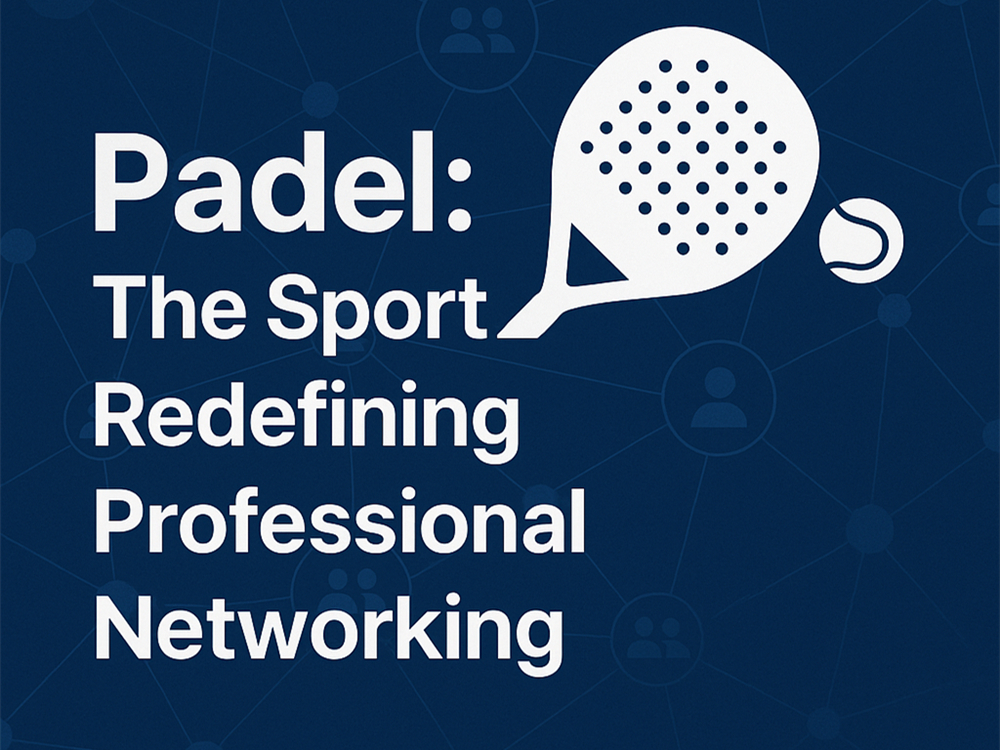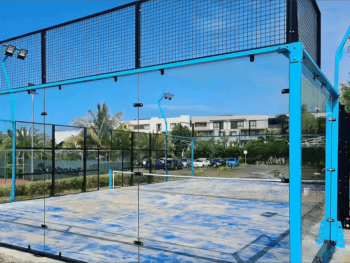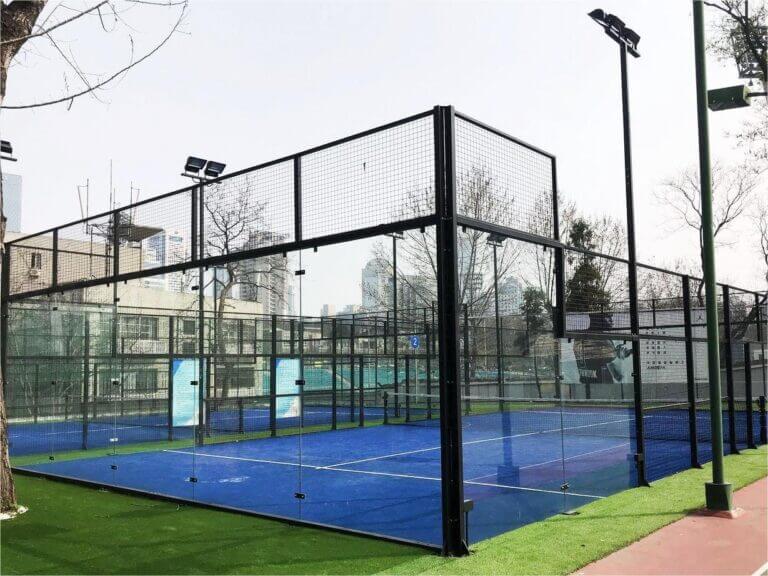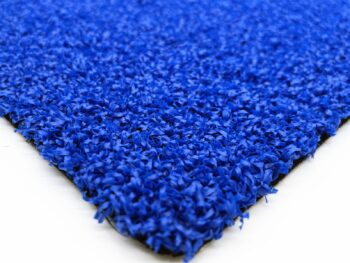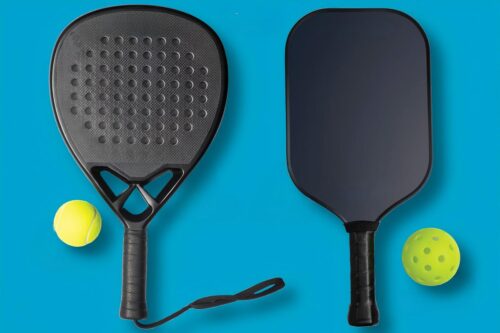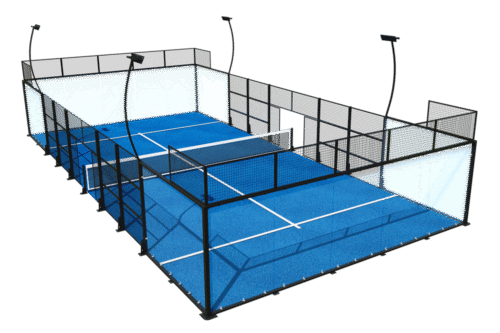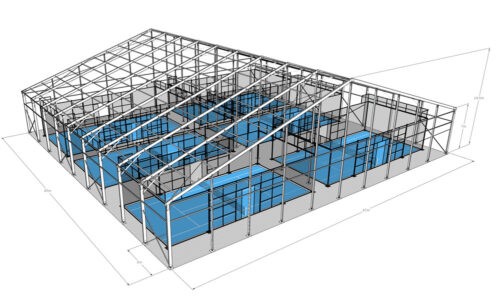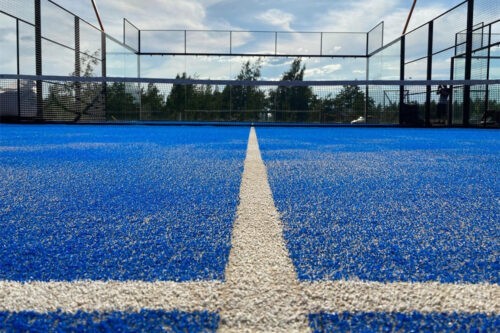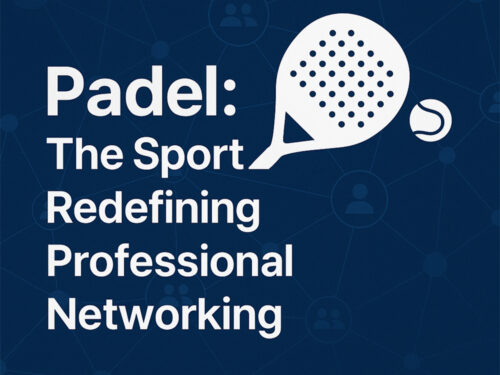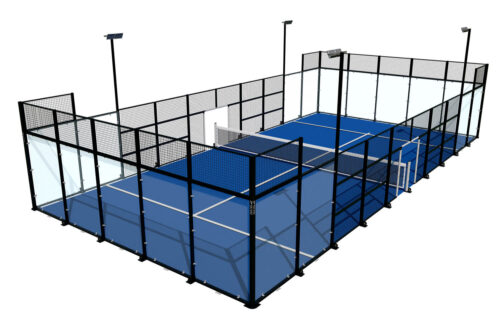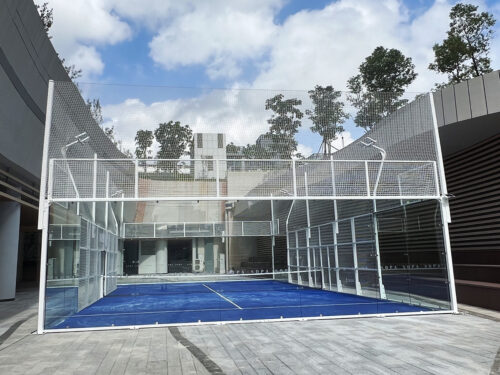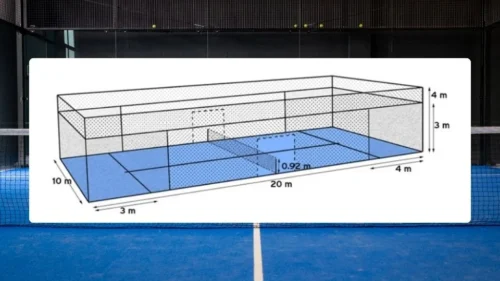ในภูมิทัศน์ทางธุรกิจยุคใหม่ พาเดลได้พัฒนาไปไกลเกินกว่าจุดเริ่มต้นในฐานะกีฬาแร็กเกตเพื่อการพักผ่อนหย่อนใจ ปัจจุบัน พาเดลเป็นแรงกระตุ้นอันทรงพลังสำหรับการสร้างเครือข่ายมืออาชีพ การพัฒนาธุรกิจ และการสร้างสัมพันธ์ที่ดีกับองค์กร ด้วยการเติบโตอย่างไม่เคยปรากฏมาก่อนในระดับโลกของกีฬาพาเดล จากจำนวนสนามในสหรัฐอเมริกาไม่ถึง 30 สนามในปี 2020 สู่กว่า 450 สนามในปี 2024 พาเดลกำลังพลิกโฉมรูปแบบการเชื่อมต่อ การทำงานร่วมกัน และการดำเนินธุรกิจของมืออาชีพ
สารบัญ
- การเปลี่ยนแปลงครั้งใหญ่: จากสนามกอล์ฟสู่สนามพาเดล
- โปรไฟล์มืออาชีพของผู้เล่นพาเดลยุคใหม่
- การเพิ่มขึ้นของเครือข่ายธุรกิจที่เน้นการใช้พาเดล
- วิวัฒนาการโครงสร้างพื้นฐาน: เหนือขอบเขตของศาล
- พลวัตและการเติบโตของตลาดโลก
- ความแตกต่างและโอกาสในแต่ละภูมิภาค
- ผลกระทบต่ออุตสาหกรรมและโอกาสการลงทุน
- อนาคตของการสร้างเครือข่ายมืออาชีพ
- บทสรุป: มากกว่าเกม
การเปลี่ยนแปลงครั้งใหญ่: จากสนามกอล์ฟสู่สนามพาเดล
เป็นเวลาหลายทศวรรษที่กอล์ฟครองความเป็นเลิศในฐานะกีฬาสร้างเครือข่ายทางธุรกิจที่ขาดไม่ได้ การเล่นกอล์ฟ 18 หลุมเปิดโอกาสให้ได้พูดคุย สร้างสัมพันธ์ และเจรจาต่อรองในบรรยากาศที่ผ่อนคลาย อย่างไรก็ตาม ความต้องการของชีวิตธุรกิจยุคปัจจุบันได้เปลี่ยนแปลงวิธีการสร้างเครือข่ายของมืออาชีพไปอย่างสิ้นเชิง
พาเดลเป็นทางเลือกที่น่าสนใจที่ช่วยแก้ปัญหาข้อจำกัดด้านเวลาและการเข้าถึงที่ทำให้กีฬากอล์ฟไม่เหมาะกับมืออาชีพยุคใหม่หลายคน ต่างจากกอล์ฟที่ต้องใช้เวลาลงทุนค่อนข้างมาก (โดยทั่วไป 4-5 ชั่วโมง) และการพัฒนาทักษะอย่างมาก พาเดลมอบประสบการณ์การสร้างเครือข่ายที่สมบูรณ์แบบภายในเวลาเพียง 60-90 นาที กฎกติกาที่เข้าใจง่ายของกีฬาชนิดนี้ช่วยให้ผู้เริ่มต้นสามารถมีส่วนร่วมอย่างมีความหมายควบคู่ไปกับผู้เล่นที่มีประสบการณ์ สร้างสภาพแวดล้อมที่เปิดกว้างและทำลายกำแพงเดิมๆ ของกีฬาชนิดนี้
ลักษณะการทำงานเป็นทีมที่เน้นพลวัตของพาเดลยังให้ข้อมูลเชิงลึกที่เป็นเอกลักษณ์เกี่ยวกับลักษณะนิสัยของผู้เข้าร่วม ซึ่งยากที่จะสังเกตได้ในสภาพแวดล้อมการสร้างเครือข่ายแบบดั้งเดิม การสื่อสารภายใต้ความกดดัน การปรับตัวให้เข้ากับสถานการณ์การแข่งขันที่เปลี่ยนแปลงไป และการทำงานร่วมกับคู่หู เผยให้เห็นข้อมูลอันมีค่าเกี่ยวกับศักยภาพของพวกเขาในฐานะเพื่อนร่วมธุรกิจหรือสมาชิกในทีม
โปรไฟล์มืออาชีพของผู้เล่นพาเดลยุคใหม่
การเปลี่ยนแปลงทางประชากรศาสตร์ของผู้เล่นพาเดลสะท้อนให้เห็นถึงการก้าวขึ้นเป็นกำลังสำคัญในการสร้างเครือข่าย ข้อมูลปัจจุบันแสดงให้เห็นว่ามีผู้เล่นพาเดลทั่วโลกประมาณ 30 ล้านคน โดยผู้เล่น 54% มีอายุ 26 ปีขึ้นไป ซึ่งเป็นวัยที่เหมาะสมที่สุดสำหรับการสร้างเครือข่ายมืออาชีพ ที่น่าสังเกตคือ ผู้เล่น 40% เป็นผู้หญิง ซึ่งแสดงให้เห็นถึงความหลากหลายทางเพศที่ชัดเจน ซึ่งสะท้อนถึงข้อมูลประชากรในสถานที่ทำงานสมัยใหม่
แม้ว่าข้อมูลการศึกษาที่ครอบคลุมจะมีอยู่อย่างจำกัด แต่หลักฐานเชิงประจักษ์จากชมรมพาเดลและเครือข่ายธุรกิจชี้ให้เห็นว่ามีผู้เชี่ยวชาญที่มีการศึกษาจำนวนมาก ผู้เข้าร่วมจำนวนมากมีวุฒิการศึกษาขั้นสูงและดำรงตำแหน่งระดับสูงในอุตสาหกรรมต่างๆ ตั้งแต่เทคโนโลยีและการเงิน ไปจนถึงการดูแลสุขภาพและที่ปรึกษา การเปลี่ยนแปลงทางประชากรศาสตร์นี้แสดงให้เห็นว่าพาเดลไม่ได้เป็นเพียงแค่กิจกรรมสันทนาการเท่านั้น แต่ยังเป็นเครื่องมือสร้างเครือข่ายเชิงกลยุทธ์สำหรับมืออาชีพที่มีความทะเยอทะยานอีกด้วย
กีฬาชนิดนี้ดึงดูดใจผู้ที่ประสบความสำเร็จสูง เนื่องมาจากการผสมผสานระหว่างการเข้าถึงง่าย การประหยัดเวลา และการมีปฏิสัมพันธ์ทางสังคม แตกต่างจากกีฬาประเภทเดี่ยว กีฬาพาเดลประเภทคู่ส่งเสริมการสื่อสารและการทำงานเป็นทีมตามธรรมชาติ ทำให้เป็นสภาพแวดล้อมที่เหมาะสำหรับการสร้างความสัมพันธ์
การเพิ่มขึ้นของเครือข่ายธุรกิจที่เน้นการใช้พาเดล
ด้วยตระหนักถึงศักยภาพในการสร้างเครือข่ายของพาเดล องค์กรวิชาชีพหลายแห่งจึงได้นำกีฬาชนิดนี้เข้ามาเป็นส่วนหนึ่งของกิจกรรมประจำของตน ปัจจุบัน กลุ่มธุรกิจทั่วโลกจัดการแข่งขันพาเดล การแข่งขันหลังเลิกงาน และกิจกรรมองค์กรที่ผสมผสานกีฬาเข้ากับการสร้างเครือข่ายเชิงกลยุทธ์
เครือข่ายที่เน้นการเล่นพาเดลเหล่านี้ดำเนินงานบนหลักการที่แตกต่างจากงานธุรกิจแบบดั้งเดิม แทนที่จะพึ่งพาการนำเสนออย่างเป็นทางการ นามบัตร หรือการนำเสนอแบบสั้นๆ การสร้างเครือข่ายพาเดลส่งเสริมการมีปฏิสัมพันธ์ที่แท้จริง ความท้าทายทางกายภาพร่วมกันและการเล่นแบบทีมช่วยทำลายกำแพงลำดับชั้น ทำให้ผู้เข้าร่วมสามารถเชื่อมต่อกันในระดับที่เป็นส่วนตัวมากขึ้น
หลายเมืองได้เกิดสโมสรพาเดลสุดพิเศษที่เน้นกลุ่มนักธุรกิจโดยเฉพาะ สถานที่เหล่านี้มักมีรูปแบบสมาชิกคล้ายกับสโมสรธุรกิจแบบดั้งเดิม โดยมีกิจกรรมสร้างเครือข่าย การบรรยาย และความร่วมมือระหว่างองค์กรต่างๆ รวมอยู่ในประสบการณ์การเล่นกีฬา
วิวัฒนาการโครงสร้างพื้นฐาน: เหนือขอบเขตของศาล
ความต้องการที่เพิ่มขึ้นสำหรับพาเดลในฐานะเครื่องมือเครือข่ายได้ผลักดันให้เกิดการพัฒนาโครงสร้างพื้นฐานที่สำคัญ สมัยใหม่ สิ่งอำนวยความสะดวกสำหรับพาเดล ได้รับการออกแบบให้เป็นศูนย์กลางธุรกิจและสังคมที่ครอบคลุมมากขึ้น แทนที่จะเป็นเพียงสถานที่กีฬาธรรมดาๆ ปัจจุบัน คลับหลายแห่งมีพื้นที่ทำงานร่วมกัน ห้องประชุม สิ่งอำนวยความสะดวกสำหรับการประชุม และพื้นที่เลานจ์ระดับพรีเมียมที่รองรับทั้งด้านกีฬาและวิชาชีพ
แนวทางแบบผสมผสานนี้จะเปลี่ยนการแข่งขันหนึ่งชั่วโมงให้กลายเป็นโอกาสในการสร้างเครือข่ายครึ่งวัน ผู้เข้าร่วมสามารถมาถึงก่อนเวลาเพื่อจิบกาแฟและพูดคุยธุรกิจ เล่นเกม และพูดคุยต่อในบรรยากาศหลังการแข่งขันที่สะดวกสบาย บางสถานที่ยังมีเซสชั่นสร้างเครือข่ายแบบมีโครงสร้างที่ผสมผสานการแข่งขันสั้นๆ เข้ากับการพูดคุยธุรกิจอย่างเจาะลึก
การปฏิวัติการเข้าถึงมีความสำคัญไม่แพ้กัน แพลตฟอร์มการจองดิจิทัลได้ทำให้ ศาลพาเดล การจองที่ราบรื่น ช่วยให้ผู้เชี่ยวชาญสามารถจัดการแข่งขันได้เองตามต้องการหรือเป็นส่วนหนึ่งของกิจกรรมพัฒนาธุรกิจตามปกติ ความยืดหยุ่นนี้ทำให้การสร้างเครือข่ายพาเดลเป็นทางเลือกที่เหมาะสมสำหรับผู้เชี่ยวชาญที่มีเวลาจำกัดและอาจหาเวลาเข้าร่วมกิจกรรมสร้างเครือข่ายแบบดั้งเดิมได้ยาก
พลวัตและการเติบโตของตลาดโลก
การเติบโตอย่างก้าวกระโดดของอุตสาหกรรมพาเดลตอกย้ำการเปลี่ยนแปลงจากกีฬาเฉพาะกลุ่มไปสู่เครื่องมือทางธุรกิจหลัก การวิจัยตลาดระบุว่าตลาดกีฬาพาเดลทั่วโลกมีมูลค่าประมาณ $225-350 ล้านดอลลาร์สหรัฐในปี 2567 และคาดการณ์ว่าอาจสูงถึง $500-870 ล้านดอลลาร์สหรัฐภายในปี 2575 ซึ่งคิดเป็นอัตราการเติบโตเฉลี่ยต่อปีแบบทบต้นที่ 9-13%
การเติบโตนี้ขับเคลื่อนด้วยปัจจัยหลายประการนอกเหนือจากความต้องการด้านสันทนาการ ศักยภาพในการสร้างเครือข่ายของกีฬาได้ดึงดูดการลงทุนจากองค์กรต่างๆ จำนวนมาก โดยธุรกิจต่างๆ ตระหนักถึง สิ่งอำนวยความสะดวกสำหรับพาเดล ในฐานะสินทรัพย์อันทรงคุณค่าสำหรับการมีส่วนร่วมของพนักงาน ความบันเทิงของลูกค้า และการพัฒนาธุรกิจ ผู้ค้าปลีกอุปกรณ์กีฬารายใหญ่อย่างเดคาทลอนกำลังลงทุนอย่างหนักในโครงสร้างพื้นฐานพาเดล ขณะที่บริษัทไพรเวทอิควิตี้กำลังให้เงินทุนสนับสนุนการขยายสโมสรพาเดลในหลายตลาด
วงจรการแข่งขันระดับมืออาชีพก็ขยายตัวอย่างรวดเร็วเช่นกัน โดยมีนักลงทุนรายใหญ่ รวมถึง Yankee Global Enterprises ของตระกูล Steinbrenner เข้าซื้อหุ้นในองค์กรจัดการแข่งขัน ภาพลักษณ์ระดับมืออาชีพนี้ยิ่งตอกย้ำความน่าเชื่อถือของพาเดลในฐานะแพลตฟอร์มเครือข่ายธุรกิจ
ความแตกต่างและโอกาสในแต่ละภูมิภาค
แม้ว่าศักยภาพในการสร้างเครือข่ายของพาเดลจะอยู่ในระดับโลก แต่การนำไปใช้งานจริงนั้นแตกต่างกันอย่างมากในแต่ละภูมิภาค สเปนมีผู้เล่นมากที่สุดประมาณ 5.5 ล้านคน ตามมาด้วยอิตาลีที่มีผู้เล่น 1.5 ล้านคน ตลาดเหล่านี้ถือเป็นระบบนิเวศการสร้างเครือข่ายที่สมบูรณ์ ซึ่งกิจกรรมทางธุรกิจพาเดลเป็นเรื่องปกติ
ตลาดเกิดใหม่นำเสนอโอกาสที่สำคัญ แม้ว่าสหรัฐอเมริกาจะมีตลาดเกิดใหม่น้อยกว่า 500 แห่ง ศาลกำลังเติบโตอย่างรวดเร็ว เนื่องจากผู้เชี่ยวชาญค้นพบข้อได้เปรียบด้านการสร้างเครือข่ายของพาเดล รูปแบบการขยายตัวที่คล้ายคลึงกันนี้กำลังเกิดขึ้นในตลาดอย่างสหราชอาณาจักร ซึ่งการมีส่วนร่วมของพาเดลกำลังเติบโตในชุมชนธุรกิจ
แต่ละภูมิภาคกำลังพัฒนาวัฒนธรรมการสร้างเครือข่ายพาเดลของตนเอง ในสเปน ลีกธุรกิจพาเดลเป็นเรื่องปกติ ในขณะที่ตลาดใหม่ๆ มักจะเน้นกิจกรรมแนะนำและการแข่งขันระดับองค์กรที่แสดงให้เห็นถึงศักยภาพทางธุรกิจของกีฬาชนิดนี้
ผลกระทบต่ออุตสาหกรรมและโอกาสการลงทุน
การผสมผสานระหว่างพาเดลและเครือข่ายมืออาชีพสร้างโอกาสมากมายในหลายอุตสาหกรรม ผู้ผลิตสนามพาเดล มีการเรียกร้องให้มีการจัดเตรียมแพ็คเกจการติดตั้งที่ครอบคลุมมากขึ้น ซึ่งรวมถึงสิ่งอำนวยความสะดวกที่เอื้อต่อธุรกิจ เช่น ระบบไฟที่เหมาะสำหรับงานอีเวนต์ตอนเย็น รั้วพรีเมียม และสิ่งอำนวยความสะดวกในคลับเฮาส์แบบบูรณาการ
ธุรกิจสมัยใหม่ที่ต้องการใช้ประโยชน์จากศักยภาพเครือข่ายพาเดลจำเป็นต้องมีมากกว่าการติดตั้งสนามแบบพื้นฐาน พวกเขาต้องการ แพ็คเกจติดตั้งสนามพาเดลแบบเต็ม ที่ครอบคลุมทุกอย่างตั้งแต่พื้นผิวการเล่นคุณภาพสูงไปจนถึงระบบไฟส่องสว่างระดับมืออาชีพ พื้นที่สำหรับผู้ชม และสิ่งอำนวยความสะดวกใกล้เคียงที่รองรับกิจกรรมทางธุรกิจ ผู้ผลิตสนามพาเดล ปัจจุบันมีการนำเสนอโซลูชันแบบครบวงจรที่รวมถึงการเตรียมสถานที่ การก่อสร้างศาล ระบบขอบเขต และแม้แต่เทคโนโลยีบูรณาการสำหรับการจองและการจัดการงานกิจกรรม
บริษัทเทคโนโลยีกำลังพัฒนาแพลตฟอร์มที่เชื่อมโยงผู้เล่นพาเดลเพื่อสร้างเครือข่ายทางธุรกิจ ขณะที่บริษัทจัดการงานอีเวนต์กำลังสร้างประสบการณ์เครือข่ายพาเดลเฉพาะทาง อุตสาหกรรมการบริการก็กำลังปรับตัวเช่นกัน โดยโรงแรมต่างๆ ได้นำ สนามพาเดล เข้าสู่ข้อเสนอการเดินทางเพื่อธุรกิจของพวกเขา
สำหรับธุรกิจที่กำลังพิจารณาลงทุนในพาเดล สิ่งสำคัญคือการเข้าใจว่าลูกค้ายุคใหม่คาดหวังมากกว่าแค่พื้นที่เล่น พวกเขาต้องการประสบการณ์ทางสังคมและวิชาชีพที่ครบครัน ซึ่งคุ้มค่ากับการลงทุนด้านเวลาและสนับสนุนวัตถุประสงค์ในการสร้างเครือข่าย การเปลี่ยนแปลงนี้ส่งผลให้ความต้องการผู้เล่นที่มีประสบการณ์เพิ่มมากขึ้น ผู้ผลิตสนามพาเดล ผู้ที่สามารถส่งมอบโซลูชันที่ครอบคลุมซึ่งเหนือกว่าการก่อสร้างศาลขั้นพื้นฐาน
อนาคตของการสร้างเครือข่ายมืออาชีพ
การเติบโตของ Padel ในฐานะแพลตฟอร์มเครือข่าย สะท้อนให้เห็นถึงการเปลี่ยนแปลงในวงกว้างของวิธีที่มืออาชีพสร้างความสัมพันธ์และดำเนินธุรกิจ การเน้นย้ำถึงความจริงใจ ความร่วมมือ และประสิทธิภาพด้านเวลาของกีฬานี้ สอดคล้องกับค่านิยมทางธุรกิจยุคใหม่อย่างสมบูรณ์แบบ
ในขณะที่การทำงานทางไกลและการสื่อสารดิจิทัลกำลังได้รับความนิยมเพิ่มขึ้น คุณค่าของการมีปฏิสัมพันธ์แบบเห็นหน้ากันอย่างแท้จริงกลับเพิ่มขึ้นอย่างน่าประหลาดใจ Padel มอบสภาพแวดล้อมที่เป็นระบบแต่ผ่อนคลายสำหรับการมีปฏิสัมพันธ์เหล่านี้ มอบสิ่งที่เครือข่ายเสมือนไม่สามารถเลียนแบบได้
กีฬาชนิดนี้เข้าถึงได้ง่ายและมีความครอบคลุม ทำให้เหมาะอย่างยิ่งสำหรับเครือข่ายมืออาชีพที่หลากหลาย ต่างจากกอล์ฟที่อาจสร้างความหวาดกลัวให้กับมือใหม่ การเรียนรู้ของพาเดลช่วยให้ผู้เข้าร่วมมีส่วนร่วมอย่างมีความหมายตั้งแต่เกมแรก
บทสรุป: มากกว่าเกม
การเปลี่ยนแปลงของ Padel จากกีฬาสันทนาการสู่เครื่องมือสร้างเครือข่ายมืออาชีพ ถือเป็นการเปลี่ยนแปลงครั้งสำคัญในการสร้างและรักษาความสัมพันธ์ทางธุรกิจ การผสมผสานระหว่างการเข้าถึง การประหยัดเวลา และรูปแบบการเล่นที่เน้นการทำงานร่วมกันอย่างมีเอกลักษณ์เฉพาะตัวของกีฬาชนิดนี้ ก่อให้เกิดสภาพแวดล้อมที่เหมาะสมสำหรับการสร้างเครือข่ายมืออาชีพอย่างแท้จริง
สำหรับธุรกิจและผู้นำชุมชน การยอมรับกีฬาพาเดลไม่ได้เป็นเพียงแค่การสร้างโอกาสทางนันทนาการเท่านั้น แต่ยังเป็นการสร้างสภาพแวดล้อมที่ทันสมัยและเน้นผู้คนเป็นศูนย์กลาง ซึ่งเอื้อต่อการสร้างความสัมพันธ์ทางวิชาชีพที่มีความหมาย ในขณะที่กีฬานี้ยังคงเติบโตอย่างต่อเนื่องทั่วโลก ผู้ที่ตระหนักและลงทุนในศักยภาพในการสร้างเครือข่ายจะได้รับประโยชน์สูงสุดจากสภาพแวดล้อมที่กำลังเปลี่ยนแปลงนี้ การทำงานร่วมกับผู้เชี่ยวชาญที่มีประสบการณ์ ผู้ผลิตสนามพาเดล ที่นำเสนอ แพ็คเกจติดตั้งสนามพาเดลแบบเต็ม ช่วยให้มั่นใจถึงประสิทธิภาพที่เหมาะสมที่สุดและมูลค่าในระยะยาวสำหรับสิ่งอำนวยความสะดวกที่เน้นด้านเครือข่าย
The ศาลพาเดล ได้กลายเป็นมากกว่าแค่พื้นสนามเด็กเล่น แต่มันคือสนามแข่งขันที่ทันสมัยที่ความก้าวหน้าในอาชีพการงาน การเจรจาต่อรอง และการสร้างชุมชนมืออาชีพ ในโลกธุรกิจที่เชื่อมโยงกันมากขึ้นแต่ไร้ความเป็นส่วนตัว พาเดลมอบสิ่งที่มีคุณค่าอย่างแท้จริง นั่นคือการกลับคืนสู่การสร้างเครือข่ายที่เน้นความสัมพันธ์ ซึ่งสร้างเครือข่ายมืออาชีพที่ยั่งยืน
สำรวจผลิตภัณฑ์ที่เกี่ยวข้อง
ยกระดับประสบการณ์สนามพาเดลของคุณด้วยโซลูชั่นระดับพรีเมียมของ Arturf เลือกจากสนามหญ้าในสนามพาเดลที่ทนทาน ออกแบบมาเพื่อการเล่นที่ดีที่สุด หรือเลือกแพ็คเกจสนามพาเดลที่ครอบคลุม ซึ่งรวมถึงส่วนประกอบที่จำเป็นทั้งหมดเพื่อการติดตั้งที่ราบรื่น
พาเดล
พาเดล
คุณอาจจะชอบ
ยกระดับประสบการณ์สนามพาเดลของคุณด้วยความรู้และความเชี่ยวชาญของ Arturf

